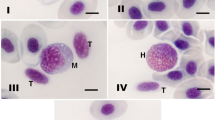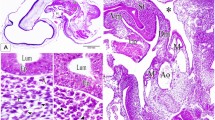Abstract
THE blood-cells (leucocytes) of the oyster have been a subject of great interest ever since Lankester first observed them crawling on the outside of the body parts of the oyster. Recently I have found that these leucocytes will live for 3 or 4 days in sea-water in dishes. If the leucocytes be set free by teasing up the heart of an oyster or by placing pieces of the palps or bases of the gills in sea-water in a petri dish, they are seen at first to be aggregated mainly in masses, but within ten minutes to half-an-hour it will be found that the leucocytes are spread over a large portion of the dish and creeping away from the masses in a flattened amœboid condition on the bottom of the dish or even on the surface film. At the end of 3 or 4 days the cells round off and die. The length of time they remain alive, however, should make these leucocytes—which are very easily obtainable—valuable as subjects for physiological investigations, and further, suggests that it might be possible to cultivate them in an appropriate medium under appropriate conditions.
This is a preview of subscription content, access via your institution
Access options
Subscribe to this journal
Receive 51 print issues and online access
$199.00 per year
only $3.90 per issue
Buy this article
- Purchase on Springer Link
- Instant access to full article PDF
Prices may be subject to local taxes which are calculated during checkout
Similar content being viewed by others
Author information
Authors and Affiliations
Rights and permissions
About this article
Cite this article
ORTON, J. The Blood-cells of the Oyster. Nature 109, 612–613 (1922). https://doi.org/10.1038/109612d0
Issue Date:
DOI: https://doi.org/10.1038/109612d0
Comments
By submitting a comment you agree to abide by our Terms and Community Guidelines. If you find something abusive or that does not comply with our terms or guidelines please flag it as inappropriate.



